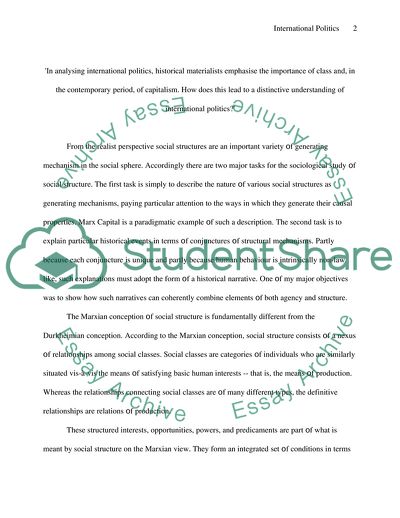Cite this document
(International Politics and the Historical Importance of Class Essay, n.d.)
International Politics and the Historical Importance of Class Essay. https://studentshare.org/politics/1712626-in-analysing-international-politics-historical-materialists-emphasise-the-importance-of-class-and-in-the-contemporary-period-of-capitalism-how-does-this-lea
International Politics and the Historical Importance of Class Essay. https://studentshare.org/politics/1712626-in-analysing-international-politics-historical-materialists-emphasise-the-importance-of-class-and-in-the-contemporary-period-of-capitalism-how-does-this-lea
(International Politics and the Historical Importance of Class Essay)
International Politics and the Historical Importance of Class Essay. https://studentshare.org/politics/1712626-in-analysing-international-politics-historical-materialists-emphasise-the-importance-of-class-and-in-the-contemporary-period-of-capitalism-how-does-this-lea.
International Politics and the Historical Importance of Class Essay. https://studentshare.org/politics/1712626-in-analysing-international-politics-historical-materialists-emphasise-the-importance-of-class-and-in-the-contemporary-period-of-capitalism-how-does-this-lea.
“International Politics and the Historical Importance of Class Essay”. https://studentshare.org/politics/1712626-in-analysing-international-politics-historical-materialists-emphasise-the-importance-of-class-and-in-the-contemporary-period-of-capitalism-how-does-this-lea.


